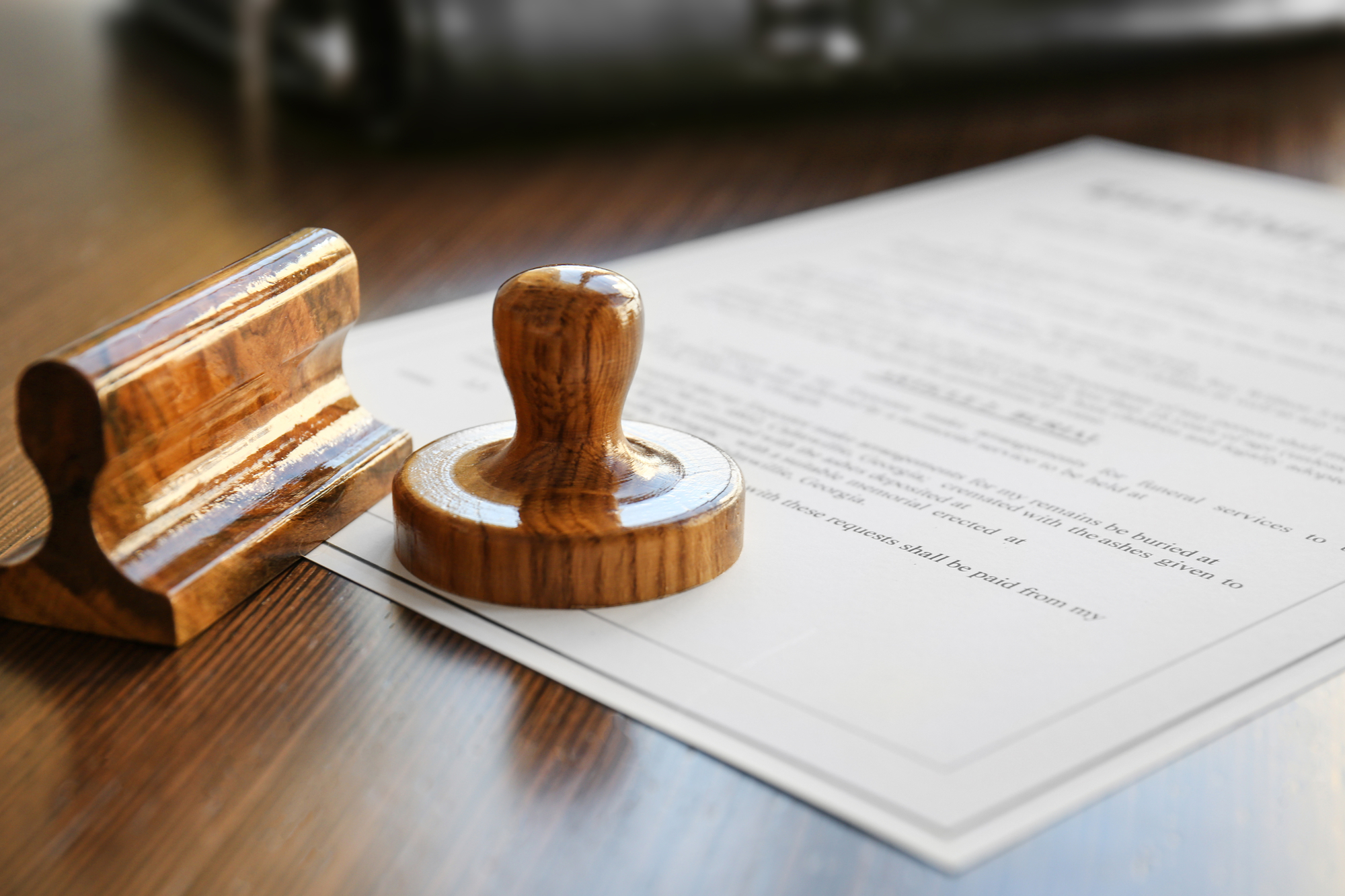


Notarized documents are documents that have been certified by a notary public to verify their authenticity. Notarization includes the witness and record of the signing of documents to make sure the process is not fraudulent, and to assure that the documents can be trusted by the authorities who requested them.
Definition and Examples of Notarized Documents
Notarized documents have been signed in front of a notary public and vetted for authenticity. The notary public is an official who verifies the identities of everybody signing the document, witnesses the signatures, records the act in an official log, and marks the document with a stamp (or “seal”).1
Documents usually require notarization if they handle important financial or legal matters that require a great deal of trust in all parties named in the document. Other types of documents that may need a notary are those that have the potential for fraud.
For example, if you are designating a beneficiary on a life insurance policy, you’re signing over a large amount of money, and you won’t be around to vouch for the transaction. Transfers of title for cars or real estate, powers of attorney, wills and trusts, advanced directives and other healthcare-related forms, and handgun permits, are just a few examples of the many types of documents that often require notarization.
How Notarization Works
Getting a notarized document means that a signature is legitimate—and nothing more. Notaries are not required (or expected) to read through the material, evaluate it for you, or provide legal advice. Nor will your notary alert you to any problems you may be signing up for. All they do is verify who signed a document and when.
Documents may or may not become official immediately after they’re notarized. If a valid signature is all it takes to execute an agreement, a properly signed and notarized document may do the trick. Ask a local attorney for guidance on your particular situation and local laws.
The Notary’s Duties
A notary’s job is to ensure that all signatures on a document are legitimate. This happens in a series of careful checks:
A notary will refuse to validate a signature if there are any potential problems with the signer.
Requirements for Notarized Documents
To get a document notarized, you’ll need to visit a notary public, prove your identity, and sign the document. To make sure you have everything in order, read through the following steps before starting the process.
Bring Official Identification
The notary will ask for identification to verify that you really are who you say you are. You’ll need official identification with a photograph—a driver’s license, passport, or other government-issued ID will typically do the trick, although requirements vary from state to state. If the notary is not confident that you are who you say you are, he or she can refuse to notarize your document. Nobody is required to notarize anything.
Wait to Sign
Bring an unsigned document to the notary—don’t sign it ahead of time. In almost all cases, the notary needs to watch you sign. If they don’t witness your signature, they can’t verify who signed the document.